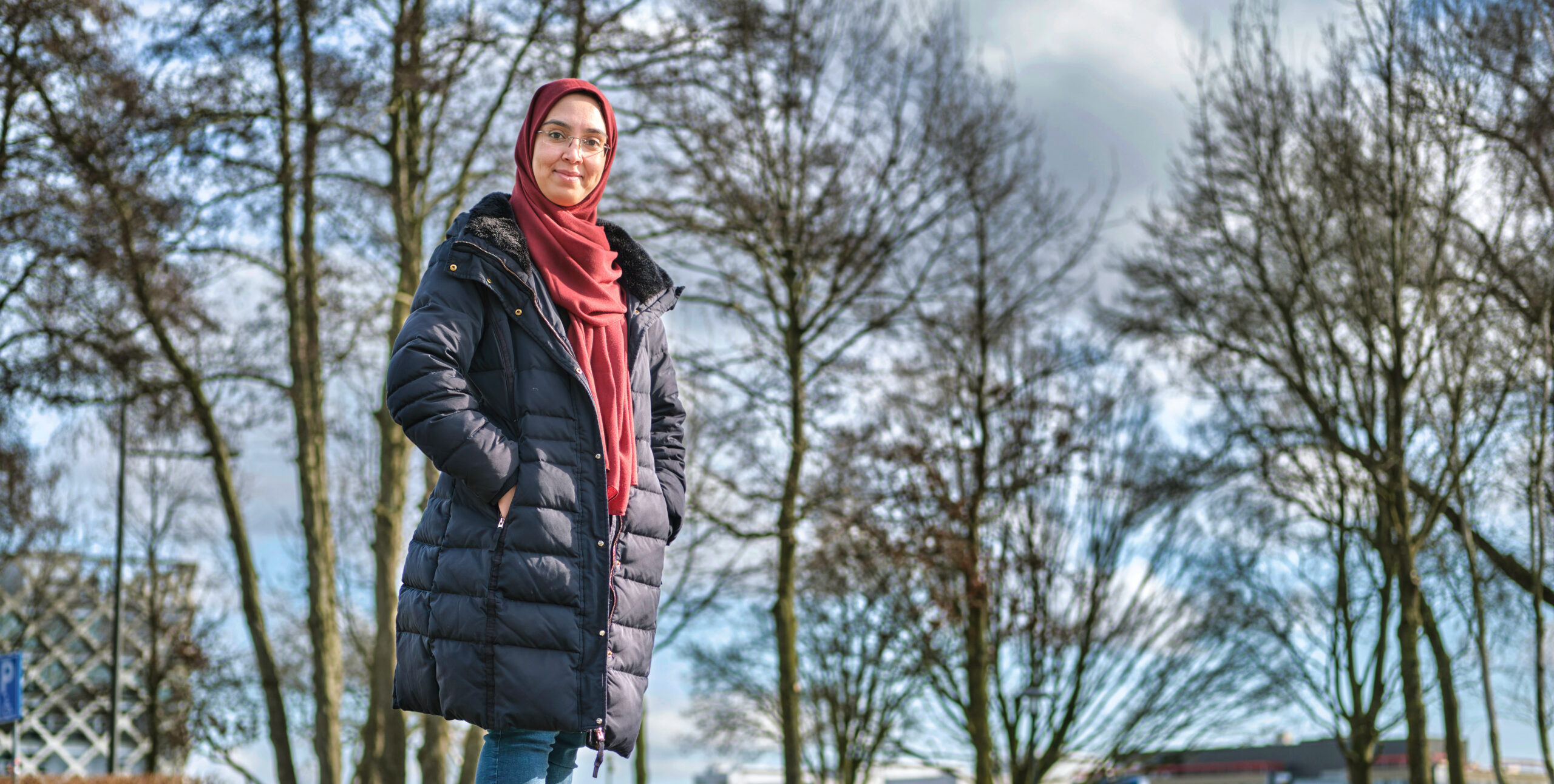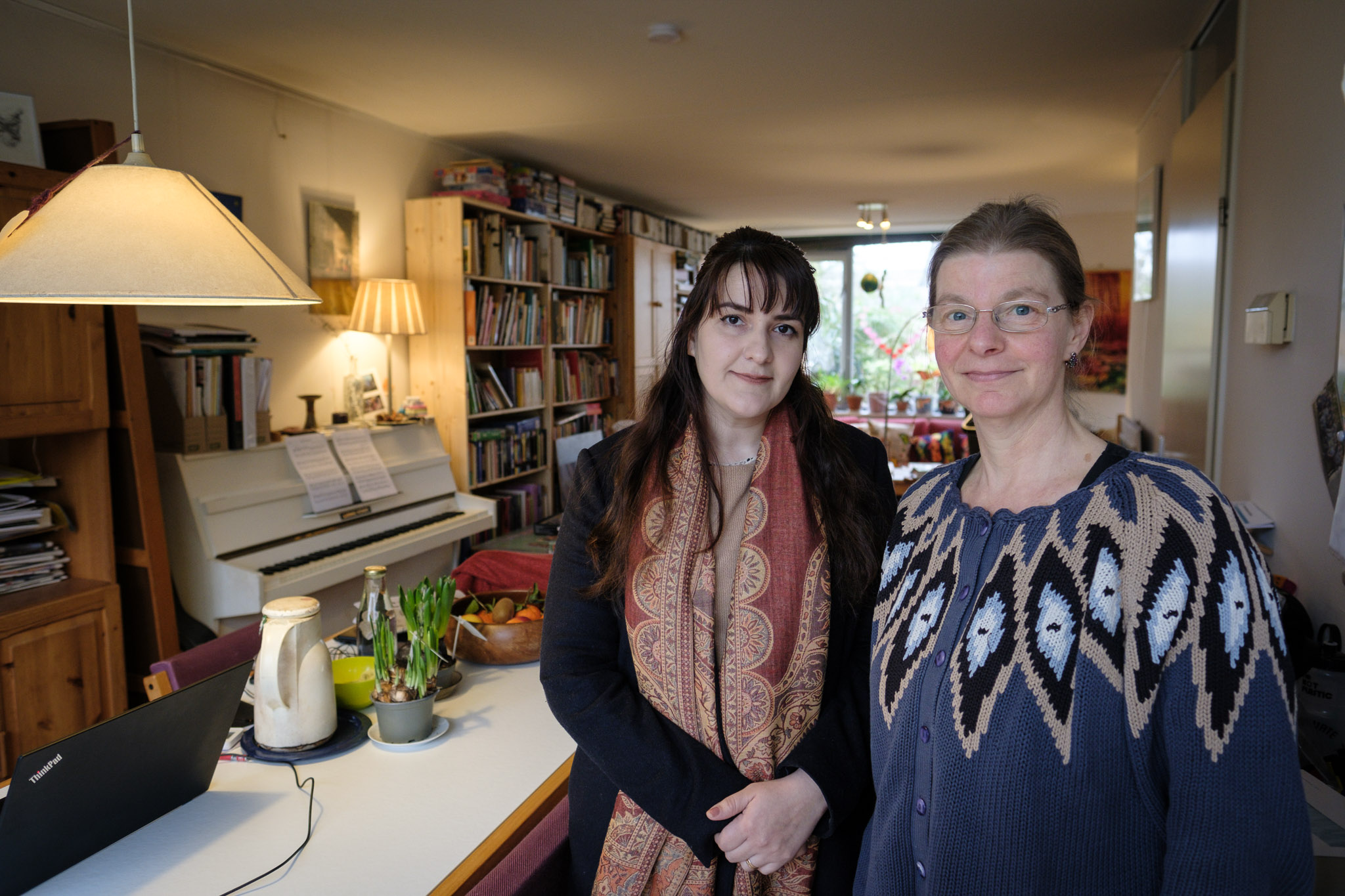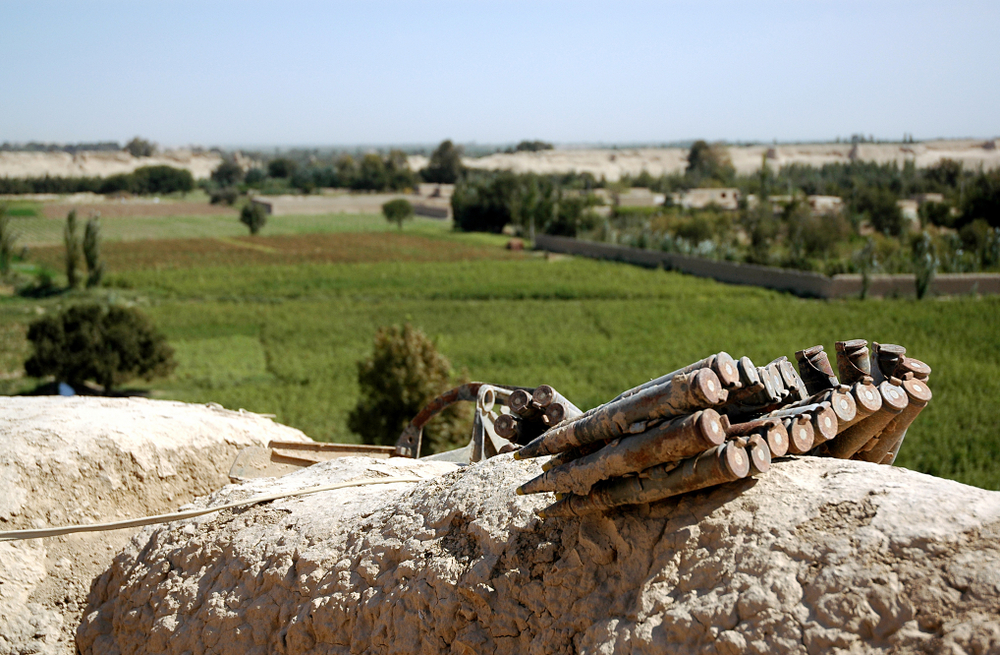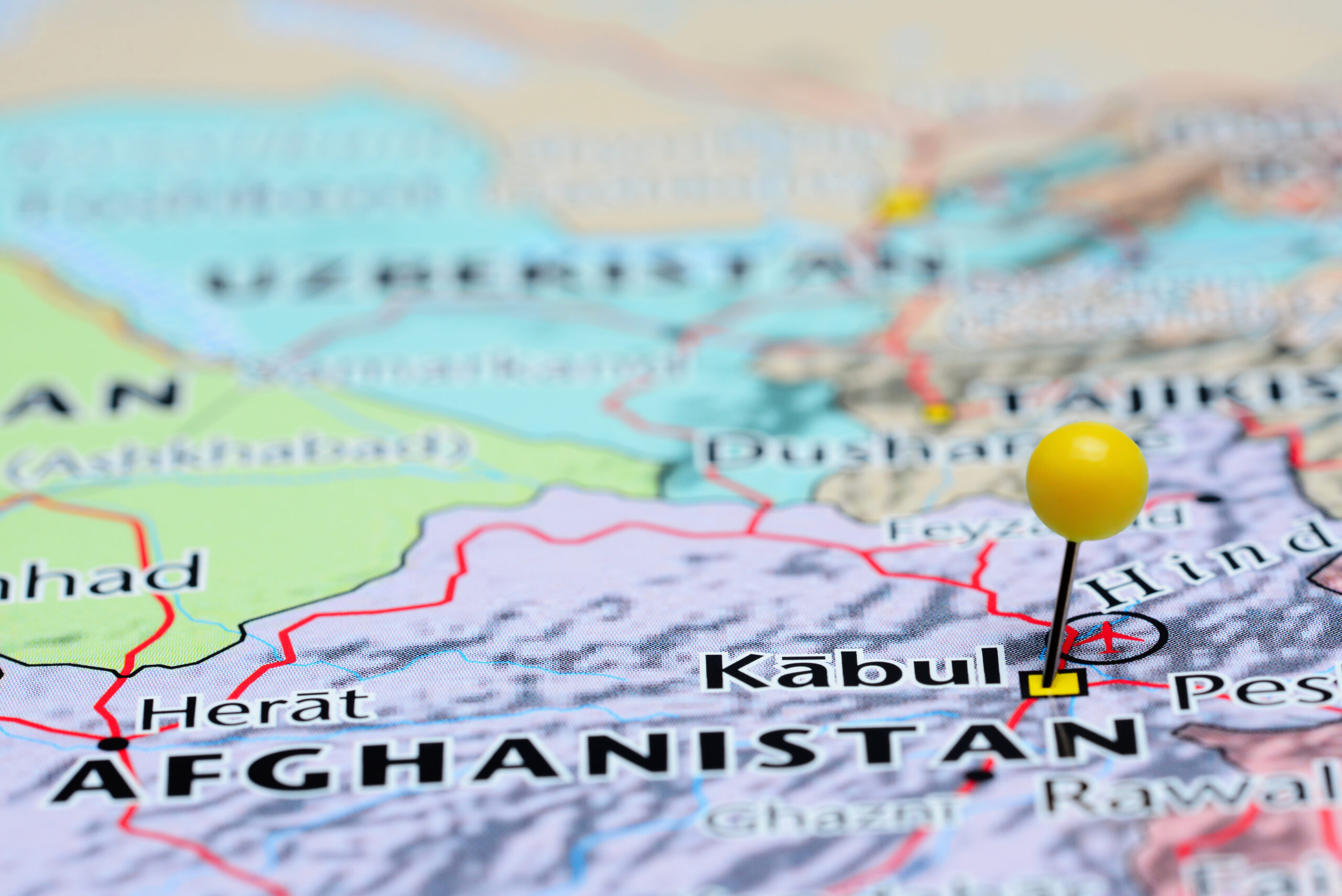Sumaia Hussaini taught at the teacher training college in Kabul that was set up by WUR, and is now in the asylum seekers’ centre in Paterswolde. She is happy to be is in the Netherlands. ‘In Kabul people have lost all hope, especially women’.
Halfway through Resource’s conversation with Sumaia Hussaini in the desolate asylum seekers’ centre (AZC) in Paterswolde, Groningen, something snapped in her. Until then, she had been politely answering questions in English. She is 32 and has a husband and two daughters aged three and seven months, respectively. She taught Animal Sciences at the National Agriculture Education College (NAEC) in Kabul, which was set up by WUR. She also trained teachers, and helped develop the curriculum of the teacher training programme. Sumaia taught both men and women and helped run a preparatory agricultural course designed specifically to enable women to do the teacher training course.
Threat
The last two years in Kabul were difficult. The college was closed a lot because of the coronavirus, and the teachers tried to offer an online alternative, in the form of videos of practicals and PowerPoints of lessons that they sent to the students. And the threat of an attack by the Taliban was never far away. That movement was not against agricultural education, says Sumaia, but the threat came from their arbitrary and ruthless actions – there were attacks on schools, hospitals and mosques, preferably in places where foreigners worked.
All the women in Kabul have been living indoors for six months because of the Taliban
‘Every foreigner was a target, so danger was always in the air.’ She laughingly recounts how NAEC’s doorman had an alarm button to warn staff of a surprise Taliban attack, which went off by accident one day.
When the Taliban entered Kabul, Sumaia’s public life was over: ‘I hate the Taliban, I was afraid of them, so I no longer went out. My husband, who worked for the army, was in danger too, but he still went shopping. For the first few days there weren’t many Taliban fighters on the streets, but they were greatly feared.’
That is why she was not sad to leave Kabul 10 days after the Taliban seized power. ‘I was able to send an email to the Dutch crisis team in Kabul.
The good thing is: I can make plans
They didn’t reply, but suddenly one evening I got a phone call from the crisis team telling me to go to the airport. We arrived at the airport at one o’clock in the morning, but we only managed to get inside at eight o’clock.’ She is not complaining, though: she was able to go straight to the Dutch military personnel at the airport. And so, after a stopover in Pakistan, she and her husband and two daughters arrived in the Netherlands in the summer of 2021.
Emotional
She only gets emotional when I ask if she is still in touch with her family and friends in Kabul. ‘People in Kabul have lost one thing: hope. Especially the women. They have lost their jobs, their education and their freedom. All the women in Kabul have been living indoors for six months. That’s because of the Taliban. They say they respect women, but we hear stories about how they misbehave and beat and stone women in the provinces. Their way of thinking hasn’t changed.’
We want the students to finish their agricultural training
Sumaia is happy to be in the Netherlands, and she hopes that she and her daughters can go to school here. She has not been able to start learning Dutch yet because of the Covid restrictions. She hopes they can leave the AZC soon. She is waiting to be allocated a house in Scherpenzeel.
What does she want to do herself? ‘I want to teach. I have a Bachelor’s degree in Veterinary Sciences and a Master’s degree in Animal Care from Kabul. I don’t know what those degrees are worth in the Netherlands. Maybe I can do a PhD. The good thing is: I can make plans.’
For the time being, she is still involved in the teacher training programme in Kabul. She has just done a workshop in Wageningen on distance learning. ‘We want the students who started the agricultural training to be able to finish it. I am still an employee of NAEC. Maybe I will get paid for this, but to me that’s not the most important thing. I mainly want to help women students in Afghanistan.’
Uncertain future
I still feel as though I am in a bad dream’, says Ezzat-Ullah Murad. Last summer, he was still the general manager of the National Agriculture Education College (NAEC) in Kabul and now he is a refugee in the Netherlands. Sitting beside him is Hamdullah Tokhi, the former dean of the teacher training college, who nods in agreement. Last year, they were very busy preparing the new four-year teacher training programme and had just received approval for it from Afghanistan’s education ministry when the Taliban unexpectedly invaded the capital, the school was closed and Ezzat and Tokhi were put on the evacuation list. Now they and their families are in different parts of the Netherlands.
Today, they are back in Wageningen, where they both did a professional Master’s at Larenstein University of Applied Sciences when it was still in Wageningen. They then set up NAEC in Kabul. And although they fled, they are still involved in the teacher training programme today. They have just completed a workshop on distance learning and will probably soon be hired by the Wageningen Center for Development Innovation (WCDI) for three months to design the distance learning programme for women students at NAEC.
The future of the teacher training programme in Kabul is uncertain. The Dutch ministry of Foreign Affairs has made funds available until May this year, when WUR’s contribution ends too. Ezzat and Tokhi are worried about the future and hope that new donors will be found for the next three years so that NAEC can grow into Afghanistan’s first agricultural university. They are hoping for follow-up so that they can continue to contribute their expertise to NAEC or similar projects. The Taliban have reportedly expressed their support for NAEC and women’s education, but the political situation in Afghanistan is still unclear and uncertain. Both Ezzat and Tokhi are reluctant to go back to Afghanistan because there are too many risks involved at the moment.

 ‘I want to teach. I have a Bachelor’s in Veterinary Sciences and a Master’s in Animal Care, from Kabul. I don’t know what the degrees are worth in the Netherlands.’ Photo: Guy Ackermans
‘I want to teach. I have a Bachelor’s in Veterinary Sciences and a Master’s in Animal Care, from Kabul. I don’t know what the degrees are worth in the Netherlands.’ Photo: Guy Ackermans 

